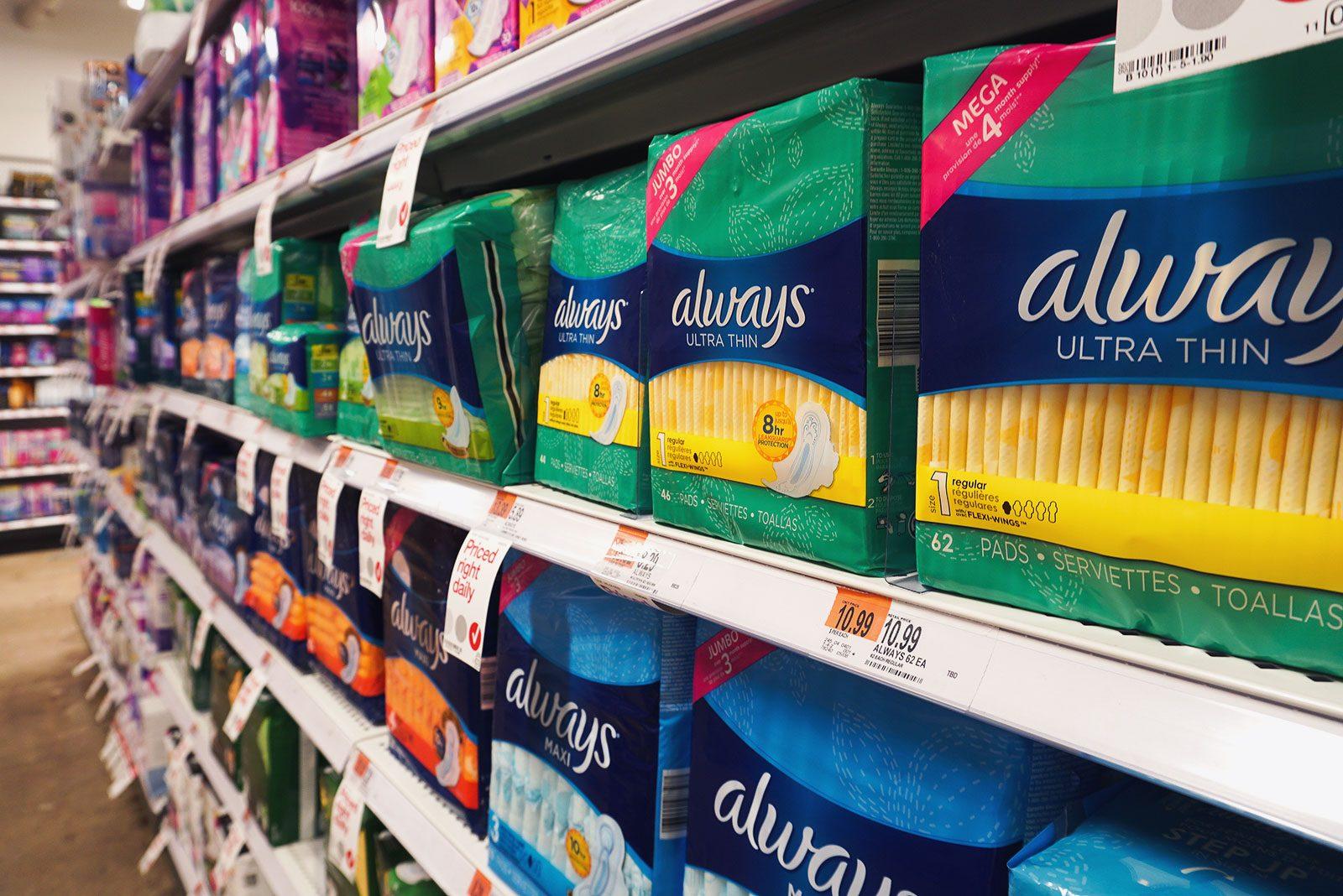A significant portion of Boston University’s student population relies on menstrual products, yet the administration fails to recognize these products as a basic hygiene necessity warranting free access in bathrooms.
Student Government Senators Nehemiah Dureus and Haley Gambone created a petition on Change.org urging the administration, the Dean of Students and BU Facilities to invest in menstrual products in campus bathrooms.
“In bathrooms across campus, dispensers of these products are old, unstocked, and locked behind a paywall, if functional at all,” the petition says. The senators are urging for the dispensers to be replaced and regularly restocked.
In college, students don’t always have access to menstrual products when they need them. Your mom isn’t there to stock the cupboard, and you probably dread having to go to CVS yourself and pick up a box of tampons. It’s wrong that anyone should feel uncomfortable buying menstrual products, but the result is that students may delay buying products until they actually get their period — putting them in a sticky situation where bathroom dispensers would make all the difference.
BU spends its money on flashy projects, like the new data sciences center, and while doing this, they are ignoring proposals from students who are right here, right now, giving their money to this institution. The school’s budget should be going toward proposals that would make a difference in students’ lives.
At the very least, functional dispensers with products for sale are a necessity.
If administrators are worried that students will come to rely on the school for all of their menstrual needs, they shouldn’t be. Nobody wants to use whatever off-brand product the school finds when it looks for the cheapest tampons available as their main source. And anyone who would have to stock up on free tampons from the GSU bathroom would clearly have a good reason to do so. The school, with a nearly $2 billion endowment, can handle the extra expense.
Menstrual products are expensive. A box of 36 CVS brand tampons, the cheapest brand available, costs $7.
It might be hard for a president who makes around $1.5 million a year to imagine, but students don’t always have $10 in their bank account to spend on basic necessities. Buying hygiene products shouldn’t come at the expense of eating a meal, but for students operating on a tight budget, it does.
The 31 male members and officers — out of 42 — on BU’s Board of Trustees have never had to experience the gripping fear of sitting in a bathroom stall, desperately willing a tampon to somehow materialize out of thin air and wishing that campus culture had progressed to a point where menstrual products could be readily available in bathrooms.
This is a health concern that could be easily addressed, but because much of the administration doesn’t understand that experience, years pass with no response to student petitions. Multiple attempts like the current one have been ignored — two years ago, the Student Government Senate took matters into its own hands when it spent the remainder of its annual budget on distributing free menstrual products across campus.
This September, Harvard brought free menstrual products to every upperclassman house and freshman yard, largely due to two years of campaigning efforts by junior Arnav Agrawal.
Agrawal brought up an interesting point in an interview with The Harvard Crimson: “If the College can provide free condoms, why can they not provide free tampons?”
BU’s Condom Fairy, a Student Health Services program, makes over 5,000 free safe sex-related product deliveries every year. Condoms are sold in vending machines across campus. Yes, free and accessible condoms are important, but sex is something that someone chooses to have. Periods aren’t.
Sex isn’t stigmatized in the way that periods are, but nobody can reasonably argue that condoms are more essential to student health than pads and tampons.
If BU were to move forward in making menstrual products accessible to students, it would be a step to show that periods aren’t something to be stigmatized. It would be a recognition that menstrual health is just as important as sexual health, even if it’s less comfortable to talk about.






















































































































